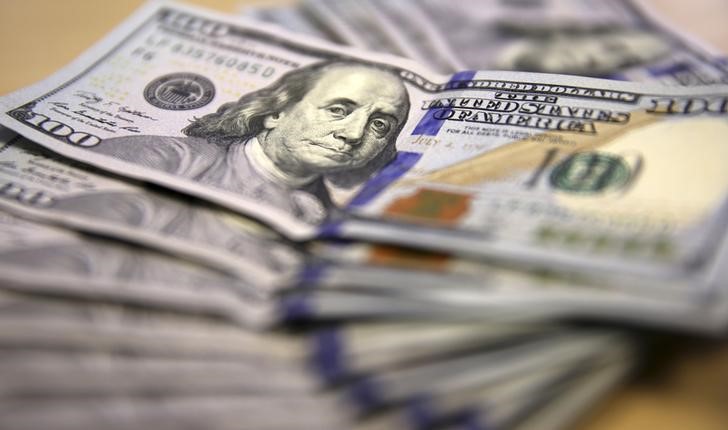By Zhang Mengying
Investing.com – The dollar was up on Wednesday morning in Asia as central banks globally are expected to brace for tightening policies to tame inflation.
The U.S. Dollar Index that tracks the greenback against a basket of other currencies gained 0.28% to 102.60 by 12:23 PM ET (4:24 AM GMT).
The USD/JPY pair jumped 0.40% to 133.12. The yen continued its loss after sliding to a 20-year low as the Bank of Japan (BOJ) has given no indication of giving up ultra-easy monetary policies.
However, Japan’s economy seems to rebound. Government data released earlier in the day showed that Japan’s gross domestic product (GDP) shrank 0.5% in January-March year-on-year, smaller than the initial reading of the 1.0% drop released last month.
“Yield differentials continue to favor the U.S. dollar, with USD/JPY breaking above 132,” City Index senior market analyst at brokerage Matt Simpson told Reuters.
“It is quite apparent that the BOJ favors defending yield curve control over a weaker currency,” he said. "135 is the next major line in the sand – the February 2002 high.”
The AUD/USD pair fell 0.33% to 0.7204, and the NZD/USD pair slid 0.39% to 0.6464. The Reserve Bank of Australia (RBA) announced a surprisingly big rate hike on Tuesday. It hiked interest rates to 0.85%, above forecasts of 0.60 prepared by Investing.com.
The USD/CNY pair inched up 0.04% to 6.6737, while GBP/USD pair edged down 0.16% to 1.2568.
U.S. 10-year yields stayed below the 3% level.
The European Central Bank (ECB) will meet on Thursday and hand down its policy decision which is widely expected to lay the groundwork for more interest rate hikes.
U.S. Treasury Secretary Janet Yellen said on Tuesday that she expected inflation to remain high, and the Biden administration is likely to increase the 4.7% inflation forecast for this year in its budget proposal.
The global economic outlook remained grim. The World Bank reduced its estimate for global growth this year to 2.9% from a January prediction of 4.1% due to soaring commodity prices, supply disruptions, and moves by central banks to hike interest rates. Investors are now looking to Friday’s U.S. consumer price index (CPI) for more clues on the interest rate hike path from the U.S. Federal Reserve.
“With quantitative tightening replacing quantitative easing and 100 basis points of Fed rate hikes coming this summer, you buy bonds and sell the dollar at your peril,” Societe Generale strategist Kit Juckes told Reuters.
